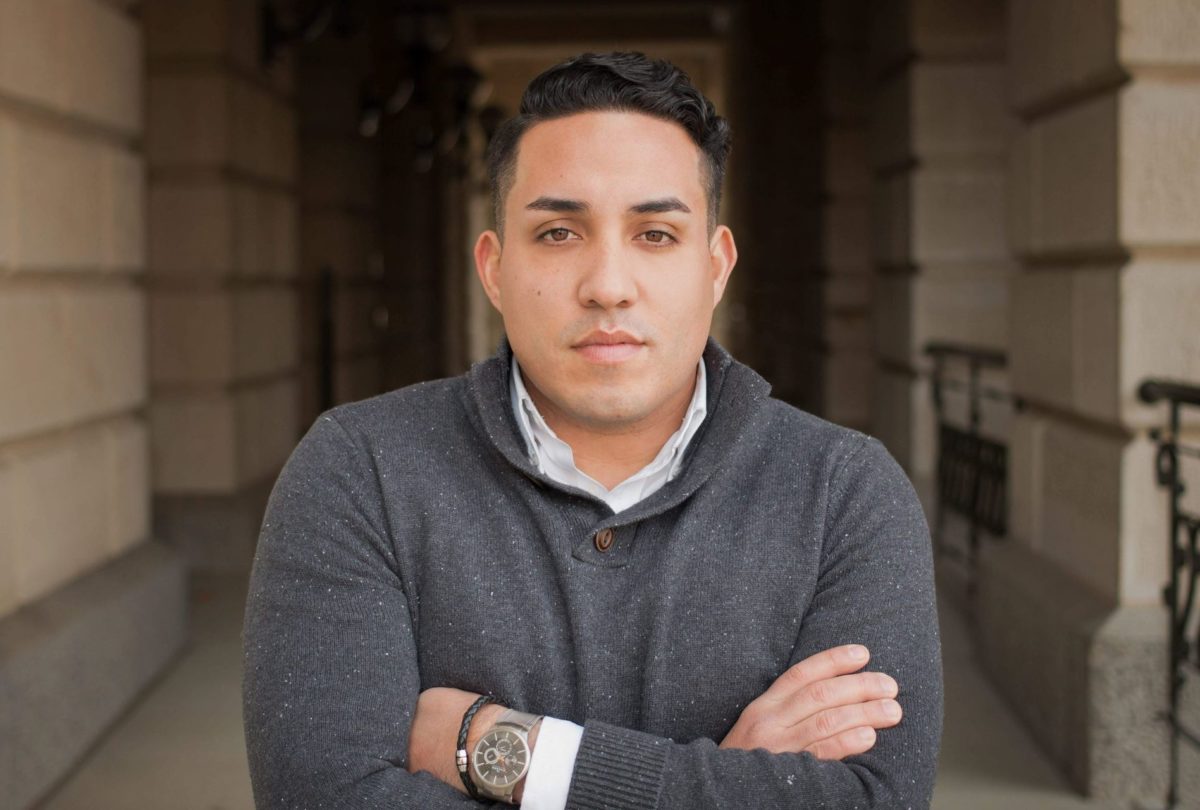Four Local Poet Laureates Carving Literary Legacies
Featured photo courtesy of Humanities Kansas
When you think of poet laureates, you probably think of those on the national stage, like Tracy K. Smith and Joy Harjo. However, 43 states appoint their own poet laureates, selecting established and passionate voices from within their own communities. These poets advance their art form in the state in a variety of ways, from leading school workshops to participating in reading series. A state poet laureate’s work can also reveal the power of place within writing, representing their locale’s unique beauty, challenges, and people. From Kansas to Texas, here are four poet laureates enriching the literary community right where they live and write.
Huascar Medina, Poet Laureate of Kansas
Medina became the youngest Poet Laureate of Kansas in 2019, as well as the state’s first Latinx poet laureate. Medina, who lives in Topeka, edits the magazine seveneightfive, which publicizes and reports on arts and culture events in the area. He also aims to represent poetry outside of academia as a proud maintenance man. Medina says this job helps inform his poetry, as it puts him in contact with the state’s diverse, shifting population and varied ideologies. The poet also performs at large public and nonprofit gatherings throughout the state free of charge.
In his poem “Per aspera ad astra,” Medina finds inspiration in the Kansas state motto, which translates to “through hardships to the stars.” He describes sunflowers, the state flower, as “seeds of fallen stars, / standing tall and deeply / rooted in this land.” Later, this becomes a metaphor for the poem’s speaker, and perhaps the state’s citizens, as well: “I’ve always felt that / late at night, in the bed of a truck, / in a Kansas field; we were / at the center of this universe.”
Emmy Pérez, Poet Laureate of Texas
Pérez has lived on the U.S.-Mexico border since 2000, a geography that affects her work as both a writer and educator. In addition to teaching at the MFA program at the University of Texas Rio Grande Valley, Pérez founded the writing collective Poets Against Walls, which uses poetry to protest the border wall building in Rio Grande Valley and to amplify underrepresented voices. She also frequently takes her teaching outside of the classroom, bringing poetry to juvenile and adult detention centers.
In “Not one more refugee death,” published in POETRY, Pérez explores the significance of the border from a personal, heartbreaking lens. “The Tejas sun took a boy / I do not know, a young man / who wanted to reach Chicago, / his brother’s number etched in / his belt, his mother’s pleas not / to leave in white rosary beads / he carried,” Pérez writes. “The sun in Tejas / stopped a boy the river held. / Detention centers filled, churches / offer showers and fresh clothes. / Water and a covered porch may / have waited at a stranger’s house.”
Margaret Rozga, Poet Laureate of Wisconsin
Rozga’s poetry aligns with her work as an activist on issues that impact those in Wisconsin and elsewhere. Most recently, she edited a collection on fair and affordable housing, commemorating Milwaukee’s fair housing marches. She also helps coordinate the Southeast Wisconsin Festival of Books.
Rozga says she finds inspiration from her garden, specifically her flowers’ ability to flourish in difficult summers. In “River Breadth,” published in Peacock Journal, this appreciation for the natural world emerges. “This is the section / we come to again and again,” Rozga writes of a stretch of river. “We who cannot know / the fullness of ocean breathe / in this sweep of river.”
Chelsea Rathburn, Poet Laureate of Georgia
Rathburn lives in the North Georgia mountains and teaches at Mercer College. She praises Georgia’s deep literary tradition, which she hopes to continue and grow through the state’s high school writing initiative. Rathburn’s own poetry stems from the female body, the experience of motherhood, and the gendered expectations placed on women.
In “The Swimmer,” Rathburn reveals poetry’s power to make connections and to transport readers through different settings. She juxtaposes her time spent studying Delacroix’s drawings in Paris and, months later, watching her daughter learn to swim at home in Georgia. Soon she’ll learn to trust her body’s buoyancy / and slide beneath the surface, unafraid,” Rathburn forecasts. “But now she claws at me, pushing me under, /
as though my arms weren’t keeping her afloat.”
Does your state have a poet laureate? If so, who occupies the position? Find out here. For a writing prompt, pen a poem as if you are the poet laureate of your state. How can you bring a sense of place to your poetry?




